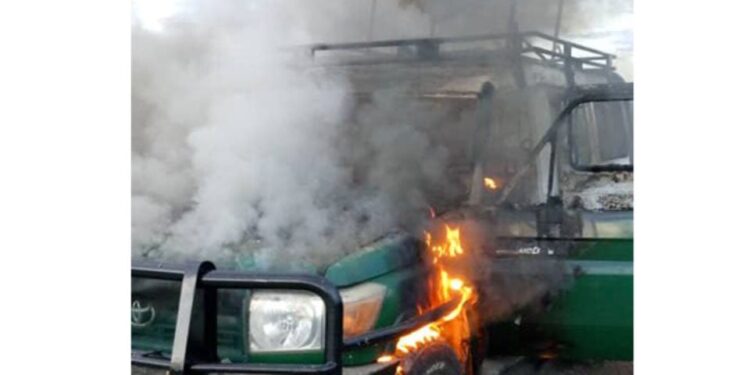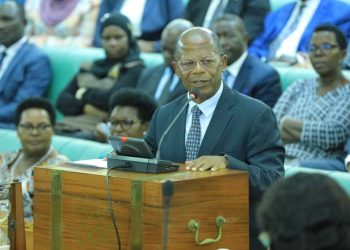Uganda, on October 18, announced its pursuit of the assailants responsible for the tragic killing of a honeymooning couple and their safari guide in one of its renowned national parks.
The Islamic State group has claimed responsibility for this attack.
President Yoweri Museveni vehemently condemned the act, describing it as cowardly, and vowed that the perpetrators would face the consequences with their lives.
The victims included a British national and a South African, along with their Ugandan guide.
Authorities attribute this attack to an IS-affiliated armed militia operating from the neighboring Democratic Republic of Congo (DRC).
The Islamic State officially claimed responsibility through a statement released on the following day, asserting that the attackers, armed with machine guns, had targeted and killed “three Christian tourists, one of whom was a Briton.”
This grim incident unfolded in Queen Elizabeth National Park in southwestern Uganda, where the assailants also set the tourists’ vehicles ablaze, as confirmed by the police and park officials.
Museveni, sharing his thoughts on the matter on social media, stated, “It was a cowardly act on the part of the terrorists attacking innocent civilians and tragic for the couple who were newlyweds and visiting Uganda on their honeymoon. Of course, these terrorists will pay with their own wretched lives.”
Authorities have attributed the attack to the IS-affiliated Allied Democratic Forces (ADF), which has been accused of causing significant civilian casualties in the violence-ridden eastern DRC.
South Africa’s foreign ministry spokesman, Clayson Monyela, expressed their condemnation of the terrorist attack, emphasizing that terrorism has no place in society and confirming that consular authorities were in touch with the family of the South African victim.
Uganda says hunting down killers of honeymoon couple
In response to the incident, Uganda has mobilized a joint force comprising the army, police, and wildlife authorities.
Their mission is to deploy all available resources, both technical and physical, to pursue and bring the perpetrators to justice for their heinous acts.
The United Kingdom has issued a warning to its citizens against traveling to the park, and France has advised its nationals to exercise caution.
Uganda’s military spokesman, Felix Kulayigye, reassured the population, emphasizing that this was an isolated incident and that Uganda remains a safe destination.
The Queen Elizabeth National Park, covering 700 square miles (1,800 square kilometers), is renowned for its rich wildlife, including tree-climbing lions.
Museveni called upon Uganda’s security forces to ensure that such incidents do not recur and to eliminate the ADF. He asserted, “The terrorists will be defeated.”
This attack followed the foiling of an ADF bomb plot on churches near the capital, Kampala, and a series of air strikes by Ugandan forces on ADF positions in the DRC.
The Queen Elizabeth Park shares a border with the DRC, including Virunga National Park, known for its rare mountain gorillas and believed to be home to armed groups.
Tourism is a significant contributor to Uganda’s economy, accounting for nearly 10 percent of its GDP in the past year, according to government data.



































































